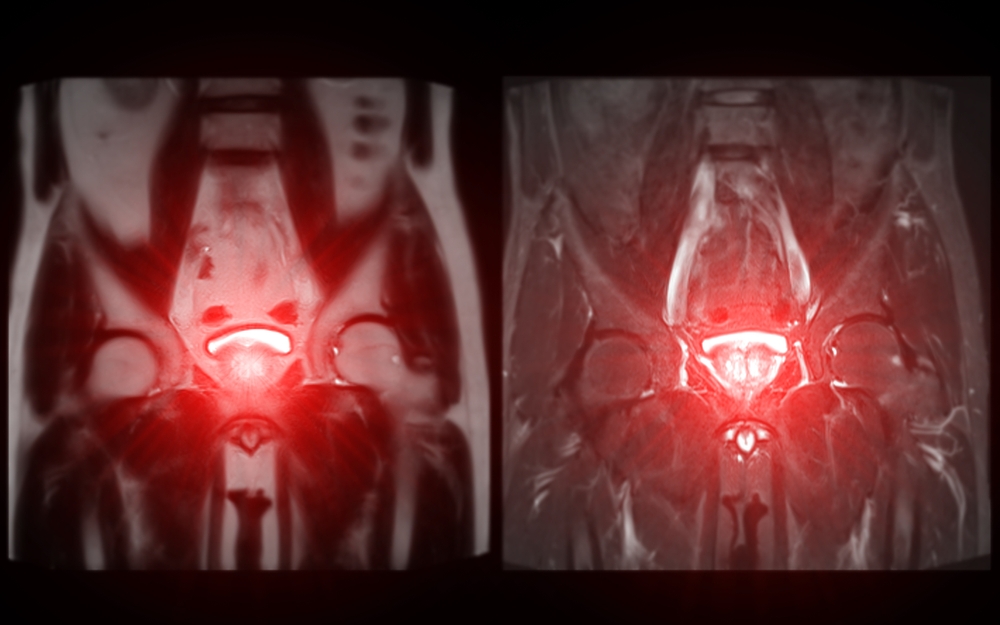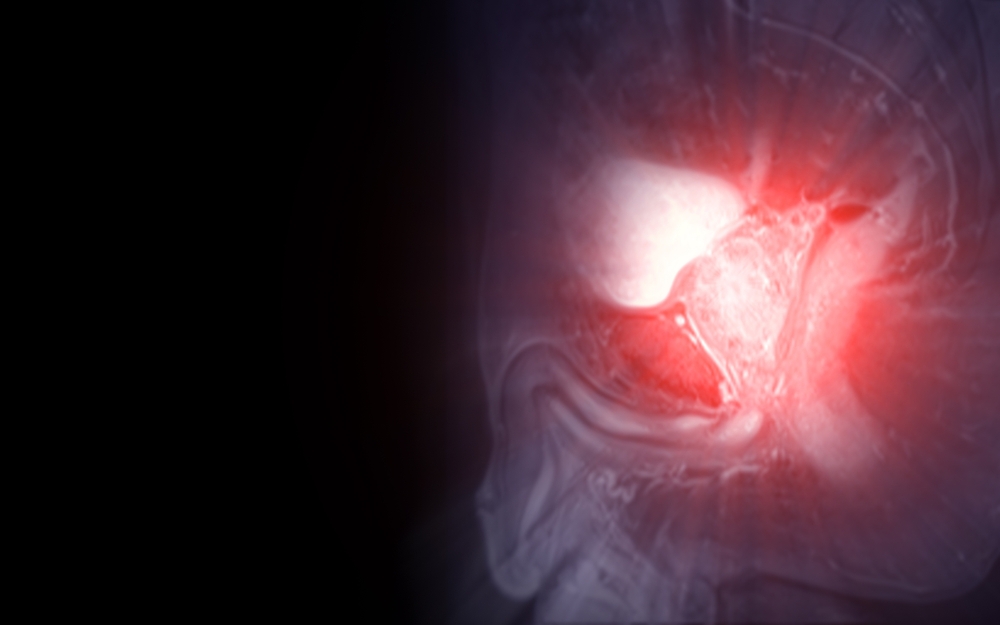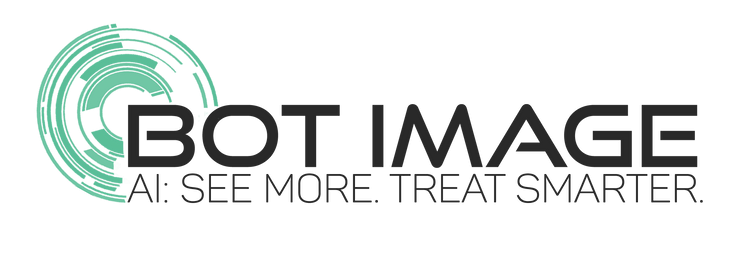
Blog

Prostate cancer is one of the most common forms of cancer in men, and early detection is critical to improving outcomes. Traditionally, prostate cancer diagnosis has relied heavily on PSA (Prostate-Specific Antigen) tests and biopsies. However, advancements in medical technology are offering new, more effective tools for diagnosing this disease. One promising development is the use of bi-parametric or multi-parametric MRI aided by artificial intelligence (AI). This cutting-edge technology has demonstrated significant improvements over traditional methods.
In this blog post, we will explore the role of AI-powered MRI in prostate cancer diagnosis. We will discuss its benefits, compare it to traditional methods, and provide insights into how this technology is revolutionizing prostate cancer care. By the end of this post, you will have a comprehensive understanding of why AI-powered MRI is a game-changer in the field of oncology.
What is Prostate Cancer?
Prostate cancer is a disease that occurs in the prostate, a small walnut-shaped gland in men that produces seminal fluid. While it can be slow-growing and sometimes requires minimal treatment, aggressive forms can spread quickly and become life-threatening. Early detection is key to successful treatment.
Traditional Diagnostic Methods
PSA Tests
One of the most common initial tests for prostate cancer is the PSA test. This blood test measures the level of prostate-specific antigen in the blood. Elevated levels can indicate the presence of cancer, but they can also be caused by other conditions like benign prostatic hyperplasia (BPH) or inflammation.
Biopsies
Following a suspicious PSA test, a biopsy is often conducted. This involves taking small samples of prostate tissue to look for cancer cells. While biopsies are effective, they can be invasive and uncomfortable for patients.
Limitations of Traditional Methods
PSA tests and biopsies, while useful, have their limitations. PSA tests can produce false positives, leading to unnecessary biopsies and anxiety. Biopsies, on the other hand, can miss cancerous areas and sometimes result in false negatives.
The Advent of MRI in Prostate Cancer Diagnosis
Introduction to MRI
Magnetic Resonance Imaging (MRI) uses magnetic fields and radio waves to create detailed images of the organs and tissues within the body. In the context of prostate cancer, MRI can provide a more detailed picture of the prostate and surrounding tissues.
Types of MRI
Bi-Parametric MRI
Bi-parametric MRI focuses on two specific parameters—T2-weighted imaging and diffusion-weighted imaging. This approach provides a clear view of the prostate and can help identify suspicious areas.
Multi-Parametric MRI
Multi-parametric MRI goes a step further by adding a third parameter, often dynamic contrast-enhanced imaging. This provides even more detailed information and can improve diagnostic accuracy.
The Role of Artificial Intelligence in MRI
What is AI in Medical Imaging?
Artificial Intelligence (AI) in medical imaging involves the use of algorithms and machine learning to analyze medical images. AI can identify patterns and anomalies that may not be visible to the human eye.
AI-Powered MRI for Prostate Cancer
AI-powered MRI combines the detailed imaging capabilities of MRI with the analytical power of AI. This combination enhances the ability to detect and diagnose prostate cancer more accurately and quickly.
Clinical Study Results
In clinical studies, AI software like ProstatID has demonstrated a 20-point improvement (on a 100-point scale of sensitivity-specificity) in the detection and diagnosis of prostate cancer. This significant improvement was observed when comparing AI-aided MRI readings to those of a dozen board-certified radiologists specializing in abdominal MRI. The study involved 150 MRI cases from various systems produced by leading manufacturers like Siemens, Philips, and GE.
Benefits of AI-Powered MRI
Improved Accuracy
AI-powered MRI offers improved accuracy in detecting prostate cancer. The technology can identify subtle changes and anomalies in the prostate tissue that may be missed by traditional methods.
Reduced False Positives and Negatives
The enhanced accuracy of AI-powered MRI reduces the likelihood of false positives and negatives, leading to more reliable diagnoses and fewer unnecessary procedures.
Faster Diagnosis
AI can analyze MRI images quickly, providing faster results. This can be crucial for patients who need timely diagnosis and treatment.
How AI-Powered MRI Works
Image Acquisition
The first step in AI-powered MRI is the acquisition of high-quality images using advanced MRI systems. These images provide detailed views of the prostate and surrounding tissues.
AI Analysis
Once the images are acquired, AI algorithms analyze them to identify suspicious areas. The AI software compares the images to a vast database of known cases to identify patterns and anomalies.
Radiologist Review
While AI provides valuable insights, the final diagnosis is made by a radiologist. The radiologist reviews the AI-generated analysis and combines it with their expertise to make an informed diagnosis.
Comparing AI-Powered MRI to Traditional Methods
Accuracy
AI-powered MRI offers higher accuracy compared to traditional methods like PSA tests and biopsies. The technology can detect small, early-stage cancers that may be missed by other methods.
Comfort
MRI scans are non-invasive and painless, offering a more comfortable experience for patients compared to biopsies.
Efficiency
AI-powered MRI provides faster results, reducing the time patients spend waiting for a diagnosis. This can be particularly important for those who require immediate treatment.
Real-World Applications
Case Studies
Several case studies have demonstrated the effectiveness of AI-powered MRI in real-world settings. For example, a study at a major medical center found that AI-aided MRI significantly improved the early detection of aggressive prostate cancers.
Patient Testimonials
Patients who have undergone AI-powered MRI scans often report a more positive experience compared to traditional methods. They appreciate the non-invasive nature of the procedure and the quick turnaround time for results.
The Future of Prostate Cancer Diagnosis
Ongoing Research
Research in the field of AI-powered MRI is ongoing, with scientists continually working to improve the technology. Future advancements may include even more accurate algorithms and the integration of additional imaging modalities.
Potential for Broader Applications
While AI-powered MRI is currently used primarily for prostate cancer diagnosis, its potential applications extend to other types of cancer and medical conditions. This technology could revolutionize the way we approach diagnosis and treatment across various medical fields.
Challenges and Considerations
Cost
One of the challenges of AI-powered MRI is the cost. High-quality MRI systems and AI software can be expensive, potentially limiting access for some patients.
Training and Expertise
The effective use of AI-powered MRI requires specialized training for radiologists and medical staff. Ensuring that healthcare professionals are adequately trained is essential for maximizing the benefits of this technology.
Ethical Considerations
The use of AI in medical imaging also raises ethical considerations, such as data privacy and the potential for bias in AI algorithms. Addressing these concerns is crucial for the responsible implementation of AI in healthcare.
Conclusion
AI-powered MRI is revolutionizing the field of prostate cancer diagnosis. With its improved accuracy, reduced false positives and negatives, and faster results, this technology offers significant benefits over traditional methods. By combining the detailed imaging capabilities of MRI with the analytical power of AI, healthcare providers can offer more reliable and timely diagnoses for prostate cancer patients.
While there are challenges and considerations to address, the potential of AI-powered MRI is undeniable. Ongoing research and advancements in this field will continue to enhance its capabilities and broaden its applications. For patients and healthcare providers alike, AI-powered MRI represents a promising step forward in the fight against prostate cancer.
If you’re interested in learning more about AI-powered MRI and its applications in prostate cancer diagnosis, consider scheduling a consultation with a specialist. This groundbreaking technology could be the key to early detection and better outcomes for prostate cancer patients.
Pioneering Cancer Detection with AI and MRI (and CT)
At Bot Image™ AI, we’re on a mission to revolutionize medical imaging through cutting-edge artificial intelligence technology.
Contact Us


